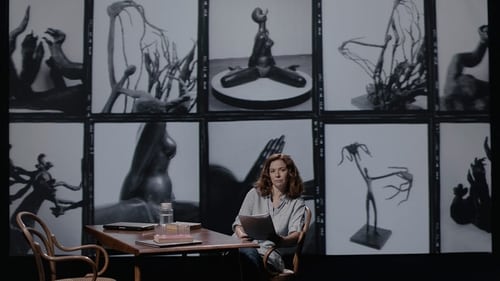
Assistant Editor
An examination of the relationship between the life and art of Maria Martins, now recognized as one of the greatest Brazilian sculptors, in addition to her engravings and texts. The film reveals the greatness of her work and her boldness when dealing directly with the feminine perspective of sexuality, a transgression that led to attacks by Brazilian critics. In parallel, her life as the wife of an important diplomat and her connection to Marcel Duchamp, in a relationship of mutual collaboration between the two artists.

Animation
An examination of the relationship between the life and art of Maria Martins, now recognized as one of the greatest Brazilian sculptors, in addition to her engravings and texts. The film reveals the greatness of her work and her boldness when dealing directly with the feminine perspective of sexuality, a transgression that led to attacks by Brazilian critics. In parallel, her life as the wife of an important diplomat and her connection to Marcel Duchamp, in a relationship of mutual collaboration between the two artists.

Assistant Director
An examination of the relationship between the life and art of Maria Martins, now recognized as one of the greatest Brazilian sculptors, in addition to her engravings and texts. The film reveals the greatness of her work and her boldness when dealing directly with the feminine perspective of sexuality, a transgression that led to attacks by Brazilian critics. In parallel, her life as the wife of an important diplomat and her connection to Marcel Duchamp, in a relationship of mutual collaboration between the two artists.

Director
The encounter between comics, music and cinema in a context of independent art production in São Paulo, Brazil, between the 1970's and the 1980's. From the musical performances of Arrigo Barnabé to the pioneer comic book Balão (Baloon), the movie approaches the experimentation in the work of a generation of Brazilian artists and the way in which the humor and the horrors of their reality were presented in their compositions. In a quite similar way as the productions themselves, the short movie has an independent and creative approach too, using the own interviewees to narrate and intervene in the film's narrative.



